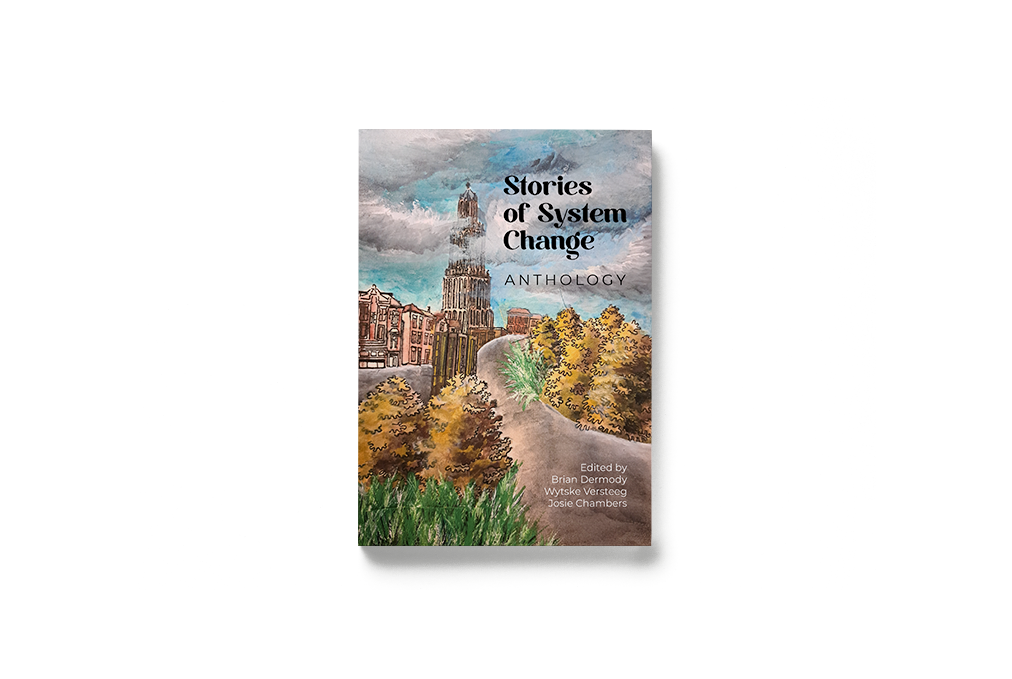Stories and Systems Change - From objective to empathic understanding of system change
Of course you know that each actor has their own perspective, but before this course, I had never actually felt it.
In the 3rd year elective course Stories and System Change, GSS students explored how stories can help understand unsustainable systems and how those systems may be changed. The students worked around specific sustainability challenges of their own choosing, such as the widening of the Utrecht Ring Road, the protein transition in Utrecht and climate induced flooding in the Netherlands. The students were guided in this process by Wytske Versteeg, a novelist and researcher, Josie Chambers, a transdisciplinary social scientist, and Brian Dermody, a systems scientist.
Working in groups, they began by mapping the structures and actors in the system. Having acquired this 'helicopter vision', they went on to explore how different individuals experience this system and the distribution of power within it. This understanding formed the basis for a series of exercises designed to help them build a fictional world around their challenge.
Each student then selected a character from that world and wrote a story about how systems change would impact this particular individual. Writing a convincing story required research to empathize with the character’s experience, an effort ideally supported through interviewing actors in the real world. The course ended with a staged court case in which the various characters could have their say and the system change was evaluated by the rest of the group, acting as a jury.
Students valued the combination of learning techniques, ranging from lectures to roleplay and observation exercises, and from creative writing to theatre. Or, as one of them put it: 'Of course you know that each actor has his own perspective, but before this course, I had never actually felt it.'
The course helped them to move beyond a seemingly objective understanding of system change to empathize with (non-)human actors' experience of change . This also allowed them to question the stories told about system change by powerful actors, and the way in which these can shape our perception of change itself.
Research team
 Researcher and writer
Researcher and writer


